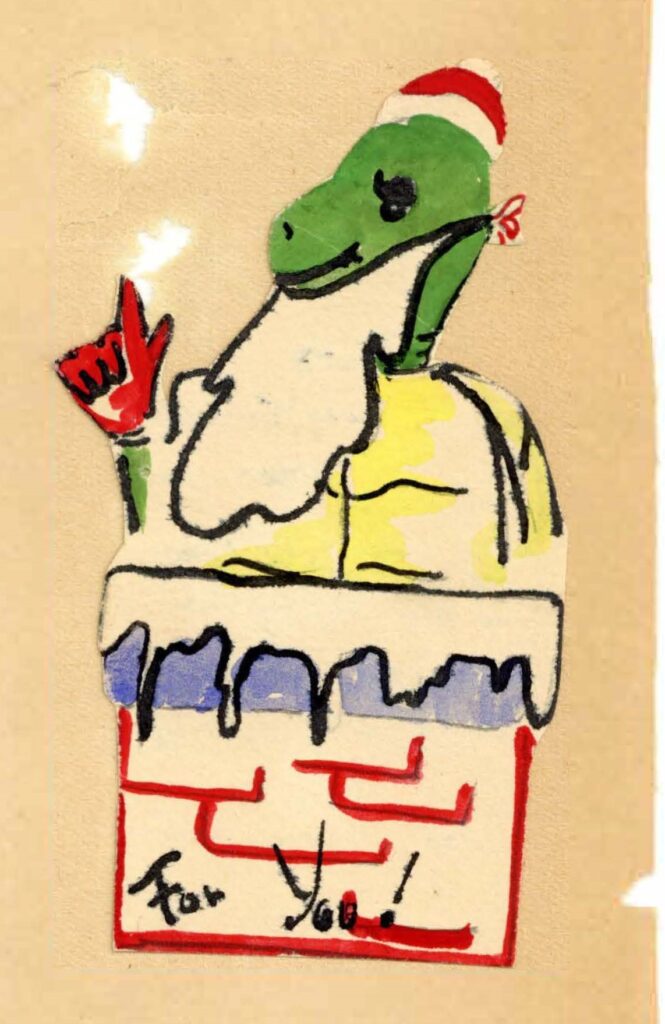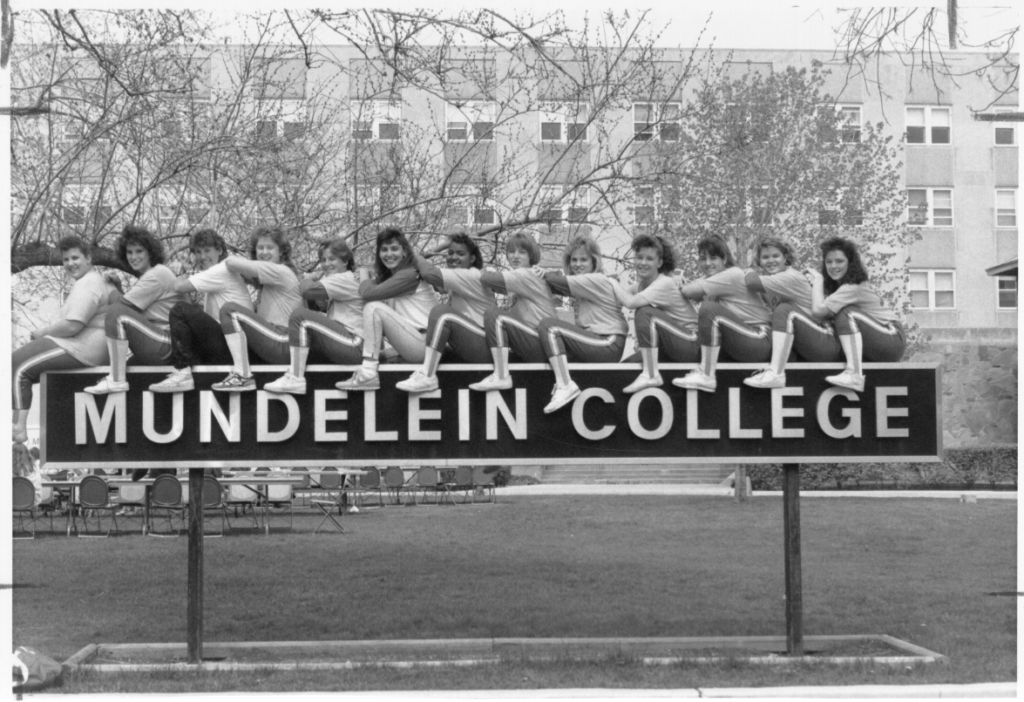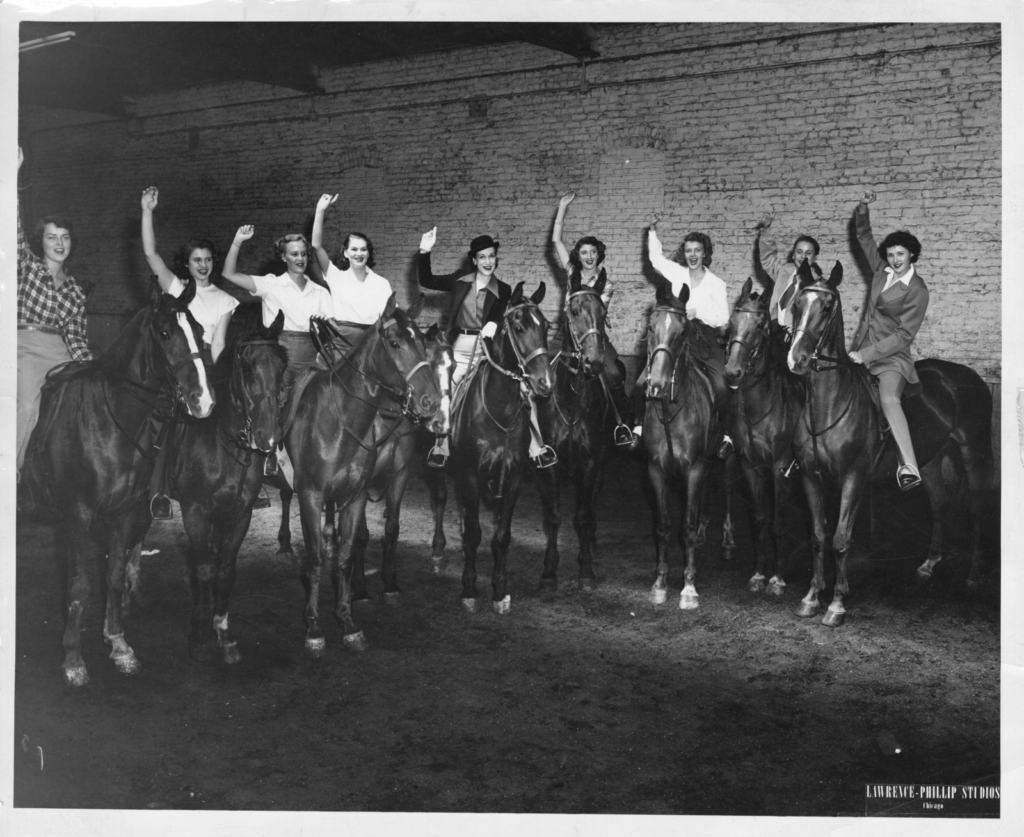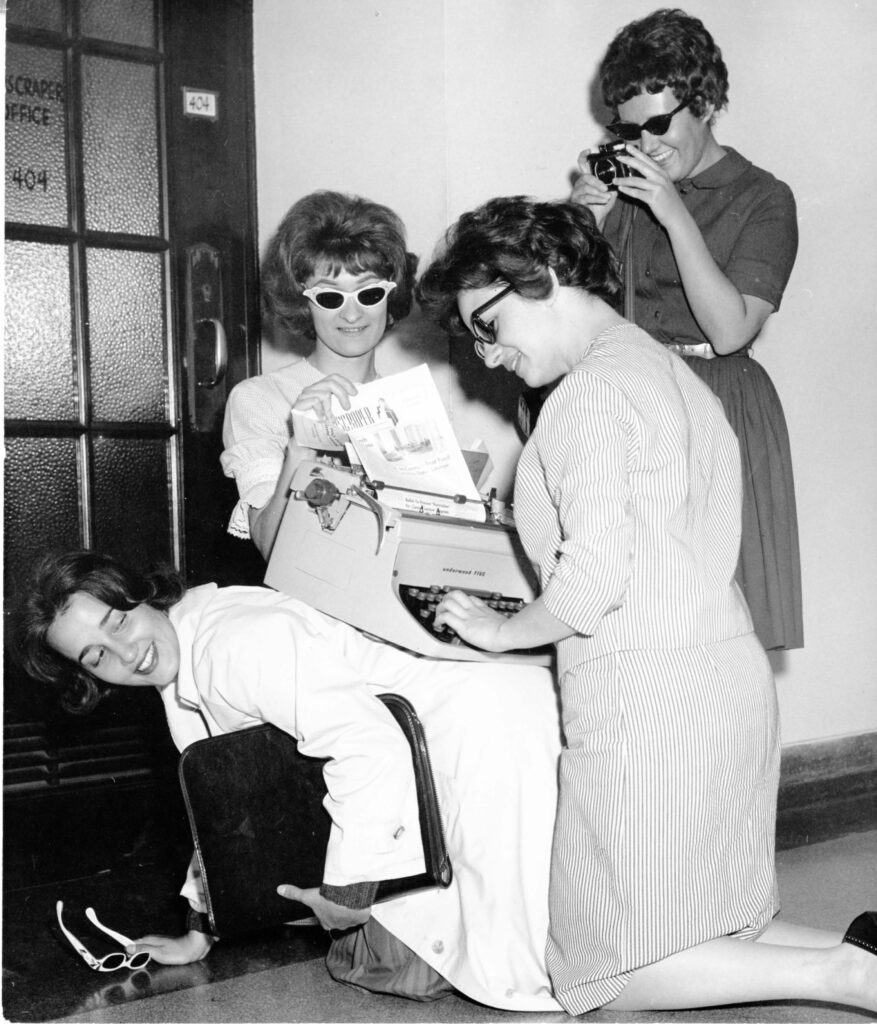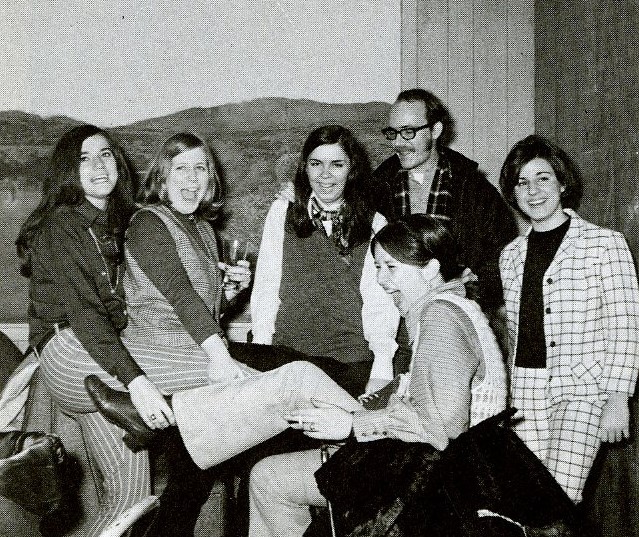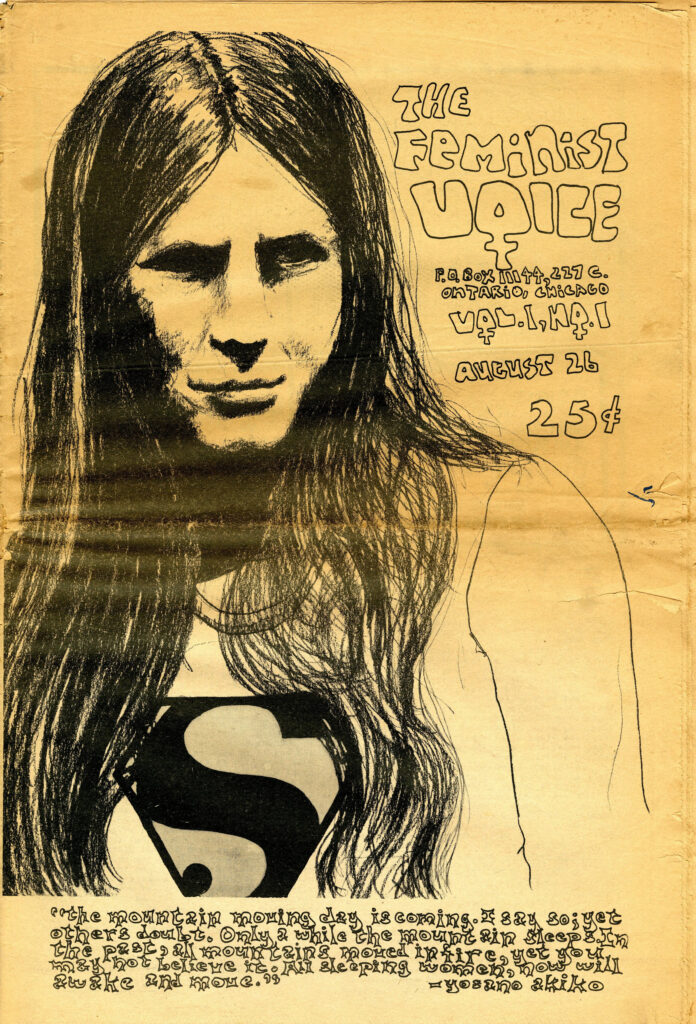This jovial turtle named Terry, dressed here as Santa Claus going down a chimney, served as the mascot for the Mundelein College Terrapin Club. Founded in 1931, the Terrapin Club was the competitive swimming club of the all-girls school until the club dissolved in the early 1980s. The activities of the club throughout the years were documented in two scrapbooks recently digitized as part of the Mundelein at 90 project. The calendar year of a Terrapin didn’t start during the holiday season; from fall to spring, these swimmers had a packed calendar, starting with tryouts early in the school year.
Terrapin tryouts were open to any student at Mundelein College, even if they were not in the swimming class. The group consisted of two skill levels, the Junior and Senior Terrapins. Any student with a successful tryout became a pledge of the club until initiation a week later. The most important part of pledge week was playful humiliation. Through the years, pledges had to engage in peculiar tasks such as collecting signatures on bathing caps, greeting Terrapin members with the phrase “I am a poor fish”, and even walking around the halls of Mundelein wearing a swim cap, swim shoes, and a life preserver around their neck while carrying either a fish or a turtle. Luckily for the new members, the initiation ceremony at the end of the week put a stop to the madness.
Continue reading
